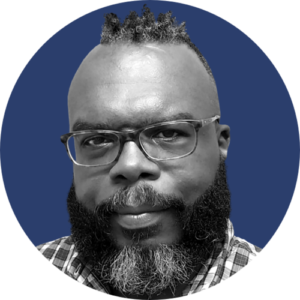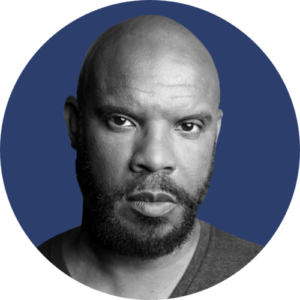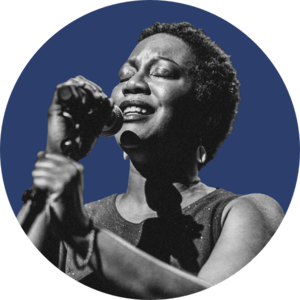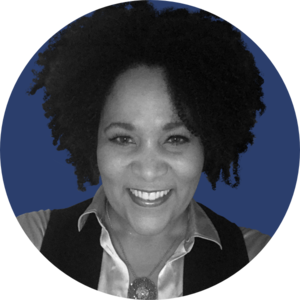Following the Emancipation Proclamation and Sherman’s Special Field Orders #15 (known commonly by the phrase “40 acres and a mule” contained therein), tens of thousands of formerly enslaved people began establishing communities where they could build livelihoods for themselves and support their families through paid labor.
As African American communities began to thrive and see financial success, they were met with massive pushback from whites in both the north and the south, facing acts of violence as well as the introduction of laws to curtail their advancements.
View Transcript
Kidada Williams: Previously, on Seizing Freedom:
Mary Armstrong: Come ‘63, Mr. Will set us all free. I said “Away I goin’ to find my Mamma.”
Titus Shropshire: Information wanted of our children, Josephine and Thomas, who were stolen from us by Brown and Rodgers in 1860.
Milly Johnson: My former owner, Albert Elliott, took my daughter Anna Johnson from me.
Spotswood Rice: I want you to remember this one thing: that the longer you keep my Child from me the longer you will have to burn in hell and the quicker you’ll get there.
KW: I’m Dr. Kidada Williams. This is Seizing Freedom. Let’s start today’s story in Savannah, Georgia. It’s January 12th, 1865–about a month after the Union, led by General William T. Sherman, swept through the southeast.
Black ministers and church officials met with Sherman and the Secretary of War, Edwin Stanton, to establish an understanding about what would happen to the recently liberated people and the land they had worked.
Edwin M. Stanton: What is your understanding in regard to the acts of Congress and President Lincoln’s Emancipation proclamation, touching the condition of the Colored people in the Rebel States?
KW: Edwin Stanton asked the questions. Garrison Frazier was chosen to speak for the ministers:
Garrison Frazier: So far as I understand President Lincoln’s proclamation to the Rebellious States, it is, that if they would lay down their arms and submit to the laws of the United States before the first of January, 1863, all should be well; but if they did not, then all the slaves in the Rebel States should be free henceforth and forever.
KW: We know–and Reverend Frazier must have known, too–that the process of seizing freedom would never be linear. There wouldn’t be one right way to do it and then it was done. For tens of thousands, seizing freedom meant enlisting in the army. For hundreds of thousands, it meant fleeing towards Union camps as refugees. For countless others, taking and holding freedom was only meaningful when it included the freedom to live with, and care for their families. But what unified those choices was the drive to decide their futures for themselves.
ES: What do you understand by Slavery and the freedom that was to be given by the President’s proclamation?
GF: Slavery is: receiving by irresistible power the work of another man, and not by his consent. The freedom, as I understand it, promised by the proclamation, is taking us from under the yoke of bondage, and placing us where we could reap the fruit of our own labor, take care of ourselves and assist the Government in maintaining our freedom.
KW: For Reverend Frazier, freedom came from owning the right to your labor. Secretary Stanton asked how half a million freedmen in the region would maintain their freedom, if control over their lives and labor were left to them.
GF: The way we can best take care of ourselves is to have land, and turn it and till it by our own labor–that is, by the labor of the women and children and old men; and we can soon maintain ourselves and have something to spare.
ES: And in what manner you would rather live: scattered among the whites or in colonies by yourselves?
GF: I would prefer to live by ourselves, for there is a prejudice against us in the South that will take years to get over; but I do not know that I can answer for my brethren.
KW: Reverend Frazier’s brethren agreed. Four days after that “pastoral summit,” General Sherman issued Special Field Orders Number 15, a decree that altered the shape of key parts of the south-eastern seaboard:
W.T. Sherman: The islands from Charleston, south, the abandoned rice fields along the rivers for thirty miles back from the sea, and the country bordering the St. Johns River, Florida, are reserved and set apart for the settlement of the negroes now made free…each family shall have a plot of not more than forty acres of tillable ground…in the possession of which land the military authorities will afford them protection, until such time as they can protect themselves…
On the islands, and in the settlements hereafter to be established, no white person whatever, unless military officers and soldiers detailed for duty, will be permitted to reside; and the sole and exclusive management of affairs will be left to the freed people themselves.
KW: But establishing and protecting something as complicated and contested as Black social freedom takes way more than a wartime decree. Today’s episode is the first of a two-part series on making a living. You’ll hear how Black people fought for authority over their work– and to own the fruits of their labor. We’ll see how Black people tried to determine their livelihoods for themselves– while white Northerners and Southerners alike tried to assert their own control.
By the summer of 1865, Sherman’s Field Orders–to give land to freedpeople, and then essentially leave them alone–applied to about 40,000 people in the Sea Islands. Many of them had been scattered throughout coastal South Carolina and Georgia, since 1861, when the Union army invaded and Confederates took flight, and were already doing well for themselves.
W. E. Towne: Very many of the freedmen, who three years ago were utterly destitute, ragged, and almost starving, have been able by their earnings to buy themselves from ten to twenty acres of land–a horse, mule or yoke of oxen, a cow, a cart, household utensils, clothing to a very considerable amount, and in several cases they have had houses built for themselves in their own lots.
KW: Just as important as having the authority over their own livelihoods, was having the freedom to decide how they would spend their money. In that Freedmen’s Bureau report, you can hear that livestock, clothes, and furniture were markers of a good life. But so were intangible things…
Sea Islands Man: They want a teacher from up North to come teach the children–tell me, what is the cost to engage one of your instructors?
White Northern Teacher: Sir, We thank you for your inquiry. The cost of employment is four to five hundred dollars a year.
SIM: We can afford it. Please send your teacher as soon as possible, for we want our children well educated.”
KW: Outside of the Sea Islands, determining how to make your living and what to do with your earnings, was easier in theory than in practice. In most places, Confederates didn’t abandon their homes–so there were still masses of frustrated, tense, and angry, white landowners and policymakers to deal with.
One of the most contested issues of emancipation was how newly freed people would spend their time. Who should manage it? Who should benefit from their labor? How would their livelihood be sustained?
Men like John Washington, who escaped across Union lines as a refugee from slavery, knew the answers: the people responsible for managing Black people’s labor should be Black laborersthemselves:
John M. Washington: A most memorable night that was to me the soldiers assured me that I was now a free man… I felt for the first time in my life that I could now claim every cent that I should work for as my own. I began now to feel that life had a new joy awaiting me.
KW: For John, that sense of joy came from having control over his own labor, and what he could do with it.
Frederick Douglass: What shall be done with them? Our answer is, do nothing with them; mind your business, and let them mind theirs.
KW: Abolitionist Frederick Douglass saw the matter as uncomplicated: Black laborers should be left to craft their own lives, by their own means without white oversight.
FD: Your doing with them is their greatest misfortune. They have been undone by your doings, and all they now ask, and really have need of at your hands, is just to let them alone.
KW: But because the national economy had depended on the wealth of the slavocracy for so long, answering these questions resulted in a constant tug of war between Freedmen and the white status quo. Some planters took calls for Freedmen to be “left alone” as endorsements to abandon or evict the people they’d enslaved.
Mingo White: The day that we got news that we were free, Mr. White called us to the house. He said: “You are all free, just as free as I am. Now go and get yourself somewhere to stick your heads.”
KW: Many were simply cast out with nothing but the clothes on their backs.
Rhody Holsell: When they turned me loose I was naked, barefoot, and didn’t have nothing to start out on. They turned us loose without a thing.
Pauline Grice: It sure was tough times. We had almost nothing to eat.
KW: Put out, and often poorly resourced, it took people like Mingo White, Rhody Holsell, and Pauline Grice weeks, and sometimes months, to get on their feet.
For others, it took years. George Washington Fields and his family, who escaped to Fort Monroe, Virginia as refugees from slavery, were determined to make their own living in Hampton.
George Washington Fields: After the fall of Richmond in 1865, things began to settle down rapidly, and work of almost every description opened up, so that the people could get employment…
KW: But finding work after gaining freedom, often meant relying on the integrity of strangers,which wasn’t always a safe bet.
GWF: Fortunately for us, on the very day we landed at Old Point, we met Mr. Bartlett, a farmer who owned a farm of many hundred acres about 12 miles from Hampton, near the Halfway House.
KW: Bartlett was looking for workers to help manage the responsibilities on his farm. And after looking over a few groups of refugees, he set his sights on the Fields family, and struck a deal with their mother, Martha.
GWF: Before leaving Old Point, mother and Mr. Bartlett entered into an oral agreement in reference to the pay each of us was to receive per month. We worked on, and month after month passed, but nothing was said about pay. Mother called his attention to the agreement he made with her. His reply was, “That’s all right, aunt Martha.”And relying on that all went to work as usual, feeling assured that in short while we would receive our pay.
KW: Months continued to pass and still the Fieldses heard nothing about payment. The family held a conference and decided to press Bartlett again for the money. And if he refused to pay, they would leave.
GWF: The demand was made the next day with the same answer, “All right, aunt Martha, everything will be all right after a while.” This answer aroused mother’s animus. She said, “Mr. Bartlett, my children and I have worked all of our lives in slavery without pay, and we do not intend to work for you any longer without being paid.” He made no reply, but walked into the house.
KW: Martha Fields had risked too much in her fight for her family’s freedom to end up dependent on Bartlett for funds that weren’t coming. They had already received nothing for almost a calendar year’s worth of work.
The next day, the Fieldses found an ox cart to take them to Hampton. They squatted in a damp basement for three weeks, while the Fields boys harvested lumber and built a new home. They all eventually found piecemeal work, taking in laundry for the Union Army, cooking, Blacksmithing, laboring on ships–everyone chipping in where they could.
For most, the ability to leave a bad arrangement, even for the unknown,was a luxury. People in more desperate situations–in more rural areas, with younger children, or no support networks at all–had fewer choices.
Those who left former enslavers but couldn’t get access to relief agencies, government aid, or mutual support were often homeless and faced rampant starvation and disease. In 1865, Carl Shurz was commanded to submit a report to the President and Senate on the state of the postwar South.
Carl Schurz: A great many Colored people, on their way to and from Vicksburg and other distant points, pass by my camp. As a rule, they are hungry, naked, foot-sore, and…friendless. They are wandering up and down the country, rapidly becoming vagabonds and thieves from both necessity and inclination.
KW: In cities across Mississippi, streets were packed with people sleeping in doorways and exposed to the elements. Under the guise of public health, the sanitation officer in Natchez decreed that “no contraband should be allowed to remain in the city who was not employed by some responsible white person in some legitimate business, and who did not reside at the domicile of his or her employer.”
But former slave owners didn’t want employees–they wanted slaves.
CS: Late slave owners have entered into a tacit arrangement to refuse labor, food or drink, in all cases, to those who have been soldiers, as well as to those who have belonged to plantations within the State; in the latter case, often ordering them back peremptorily to their ‘masters’.
KW: White supremacists had long justified Black people’s enslavement by claiming that they were unfit for freedom. And “vagrancy” became the self-fulfilling proof to those claims. They pointed to the suffering of turned out free people as evidence of “dependency,” that freedmen couldn’t take care of themselves.
By limiting freedpeople’s right to do anything other than the work they had done in bondage, and then wrapping those limitations in the language of dependency, white supremacists undermined Black people’s control over their own livelihoods. Lack of control was felt most by people who couldn’t leave, those who had to stay with their former enslavers in order to survive. Many took whatever jobs they could for whatever pay–if any–was offered, with the hope that they could eventually move on.
But an itinerant workforce wasn’t in the white planters’ best interest. So they pushed to secure year-long contracts with former slaves that kept them in bondage in all but name.
Contract Reader: The following contract was made and entered into between W C Penick and the negroes whose names are signed to the said contract to wit: they are to remain on the said Penicks plantation and occupy the houses as heretofore and to complete the working of the said Penick’s crop…
Lorenzo Ivy: When the war closed, our master told all the people, if they would stay and get in the crop, he would give them part of it. Most of them left; they said they knew him too well. Father made us all stay, so we all worked on the remainder of the year, just as if Lee hadn’t surrendered. I never worked harder in my life, for I thought the more we made, the more we would get.
CR: …after the crop of the said Penick & the undersigned negroes is made, the male part of the said negroes are to repair the fences…females are to spin, weave & make up clothing for their own respective families…
LI: We worked from April til one month to Christmas…Then we went to our master for our part he had promised us but he said he wasn’t going to give us anything, and he stopped giving us anything to eat, and said we couldn’t live any longer on his land.
KW: When they could, Freedmen pushed back on contracts– often turning to the Freedmen’s Bureau or local courts for help with negotiations. But appeals largely fell on deaf ears. Employing almost exclusively white agents, the Bureau was more concerned that Black people worked than they were about the conditions of that work.
R.I. Cromwell, a Black medical doctor from the North, tried to get a position within the Freedmen’s Bureau in New Orleans, so that locals would have someone in their corner.
Dr. R.I. Cromwell: My people want a Black man among them– a man who has the good of his race at his heart– one that will instruct them aright and encourage them when they do good– a man of ideas, will, and courage. I think that Colored men are the most suitable for taking charge of government plantations cultivated by freedmen, hospitals for freedmen, etc.
Now sir, with these facts set forth, if you think you have any employment for me at a salary that would justify a man to take hold of the great task you can let me know through the post office the place and time to have an interview.
KW: Cromwell wasn’t awarded the job. The Bureau didn’t even acknowledge his letter. But he had the tenacity to make up a position for himself and then apply for it.
A committee of Black men in South Carolina bypassed the Freedmen’s Bureau and took their grievances with unfair contracts all the way to the top. They wrote to President Lincoln.
South Carolina Freedmen: Sir, we the undersigned, believing we are unfairly dealt with, are led to lay before you these, our grievances, first–then our petition.
Freedman 1: Mr. Edward Philbrick, a Northern man, has bought up all our former masters’ lands under false pretences. To wit: he promised to buy in, at public sale, with our consent all the lands on 12 plantations. Before buying, he promised to sell to us again any amount of the land at $1 per acre…
Freedman 2: We have gone to Mr. Philbrick and asked him to sell us our land and get for an answer that he will not sell us one foot and if he does sell to anyone he will charge $10 per acre.
Freedman 3: We have worked for Mr. Philbrick the whole year faithfully and have received nothing comparatively, not enough to sustain life if we depended entirely upon our wages. He has stores here charging fearful prices for every necessity of life, and at last the people have become discouraged, almost heartbroken.
Freedman 4: He will not sell us our land, neither pay us to work for him; and if we wish to work for others where we might make something, he turns us out of our houses. Says we shall not live on his plantation unless we work for him.
KW: Philbrick was one of those white Northern missionaries who claimed to be motivated by a “selfless passion” for Black people’s freedom, but didn’t mind lining his own pockets in the process. The freedmen who Philbrick defrauded asked that he either be forced to live up to his promises, or that the government repurchase the land and sell it back to them. They were clear about what they wanted to right this wrong:
Freedman 1: An agent may be sent to us who will not see wrong, but right done to us…
Freedman 2: …one who will deal justly by us. We do not want a master or owner…
Freedman 3: …neither a driver with his whip…
Freedman 4: We want a friend.
KW: But President Lincoln didn’t write back, and no agent was sent to settle the matter. Philbrick refused to sell any of the land until 1866–and even then, only on two of his plantations, at $5 per acre, a 400 percent increase in cost.
Between bad contracts for work that didn’t seem all that different from slavery, to unresponsive relief agencies that upheld the interests of white planters, freedmen often had more success when they worked in community to protect each others’ interests.
On one plantation in Louisiana, a group of freed people became self-sufficient when Confederates fled Union occupation. Later in the war, they banded together to prevent an outsider from taking over. Their story was captured in a letter sent to a relative by a white neighbor who saw it all happen. She refers to the outsider as the “overseer,” revealing her assumption that he could claim authority over the land and its people.
Fannie: Before this letter reaches you, you will probably hear of the rebellion on the place about Mr. Grey, the overseer, coming there. He says when he came in sight of the plantation, the bell commenced ringing furiously and by the time he crossed the bridge every man, woman, and child on the plantation had collected around the overseer’s house.
One of the men seized the bridle and told him he should not set foot in that house, that the quarter belonged to them and no damned white man should live there. One man told him if he went to live in that house they would burn powder and lead around it all night.
KW: The overseer tried to take shelter on a different plantation nearby. But just before he reached his destination, a bell heralded his approach, and he was met with the same resistance. He fled to the nearest city to rally a squad of soldiers to arrest the freed people–but had no success.
Many free families in rural settings relied on community networks to protect their livelihoods. In larger cities, and in families like George Washington Fields’, every member had to take on some form of work to make ends meet.
GWF: And about a week after we moved, sister walked in; and it is hard to describe the scene. Mother with arms clasped around Louisa’s neck was saying, “Thank God. He told me I should see my child again,” and all shedding tears of joy over the return of our sister whom we had not seen for several years. This was indeed a day of great rejoicing.
She came in the nick of time, for the wash for the soldiers had increased considerably, and besides the younger children attended school regularly and could not assist as before.
KW: For them, and so many other families trying to sustain themselves on their own terms, “seizing freedom” required pooling all of their labor. And it was in that vulnerability of need, that many former enslavers tried to reassert control over people like Jane Kamper.
Jane Kamper: I was the slave of William Townsend of Talbot County. When I told Mr. Townsend of my having become free & desired my master to give my children & my bedclothes, he told me that I was free but that my children should be bound to him.
KW: Jane lived in Maryland, but white folks all over the country were trying to control Black people by “apprenticing” their children. In other words, using them for labor until they were adults.
JK: He locked my children up so that I could not find them. I afterwards got my children by stealth & brought them to Baltimore.
KW: Some employers would falsify Black children’s ages to keep them longer. But all planters really needed to do to get away with kidnapping was claim that newly freed men and women didn’t have the mental or financial means to look after their own children. That was the case for Joe Bright and his wife, Polly. They had six children who were old enough to help them on their family farm.
Joe Bright: I am perfectly able to support my family by my hard labor and work and would do right well if people in Sampson County would not interfere with my family matters. But they broke me down three times by taking away my help on the farm–my children–so that I am not able to do the work.
KW: The Sampson County clerk and Polly Bright’s former enslaver, W. A. Matthis, wanted those children to do work for him instead. He claimed that Joe “wasn’t the proper person” to be in charge of his own children. Matthis used his influence to draw up official documents, binding the Bright children over to him as unpaid laborers.
Joe Bright made three trips to the county courthouse to plead his case, but was unsuccessful–the court was Matthis’ arena. So the Brights appealed to a justice of the peace and then the Freedmen’s Bureau, eventually winning their children, and their livelihood back.
During Reconstruction, local authorities all across the South were often members of the former slavocracy. So when it came to mediating disputes, they mostly took the planters’ word and helped to further the lie that newly freed people were naturally dependent. By signing off on this kind of “paternalism,” authorities were basically scoffing in the face of abolitionists like Frederick Douglass, who passionately objected to arguments for white supervision.
FD: If men were born in need of crutches, instead of having legs, the fact would be otherwise. We should then be in need of help, and would require outside aid; but according to the wiser and better arrangement of nature, our duty is done better by not hindering than by helping our fellow men; or, in other words, the best way to help them is just to let them help themselves.
KW: But what if you were, to play off Douglass’s metaphor, “born in need of crutches” or dependent on outside aid? At the end of the Civil War, thousands of disabled people–deaf folk, blind folk, partially-mobile and many more–were still trapped under the scourge of slavery. They’d been emancipated in a decree, but seldom in actuality.
That’s because the “new awaiting joy” that John Washington felt when he crossed Union lines and worked for his first few cents was only as claimable as his ability to walk toward it. If you were elderly, infirm, disabled or had special needs, you were largely reliant on family or financial aid from the Federal Government, which was dispatched haltingly.
So people like Charles Gelston, who lived alone and was too old for hard manual labor, became entrepreneurs.
Charles Gelston: In the course of the last four or five months, I have collected some three or four thousand pounds of rags. I requested the army surgeon to help make sale of them, as I was in great want of means. He accordingly sold the rags.
KW: But even those who persisted and made work for themselves couldn’t always defend their right to own their labor.
CG: But a few days afterward, the army surgeon met Mr. Brown, the Treasury Agent, who said, “Did you sell those rags? Don’t you know that they are Government property? The surgeon explained that I had gathered the rags from the streets and garbage, hauled out and thrown away in the woods by the scavengers, where the regiments or individual soldiers had thrown away their old clothes…That he had seen me wash, and dry, and pack away perhaps fifty pounds of rags per day. But Mr. Brown says, “No difference, he can’t have them.”
KW: Gelston was desperate for fiscal independence–it meant being master of his own fate. With the help of a local Freedmen’s Bureau agent, he appealed to the South Carolina Secretary of the Treasury, claiming that he deserved the rags and profit. Gelston won his case.
Black people found all kinds of other ways to make money and sustain themselves.
Martha Thompson: How do I make a living? I leave my baby with a neighbor and then come and pile cord wood in this here yard. We was working toward building up a meeting house but after so many of our men were pressed into service, we let it go. Still, don’t need four walls to find the Lord.
KW: Others fished and hunted. They raised corn, peas, sweet potatoes, and other staples they could use to support their families–and sell.
For some who had been artisans or knew a trade, the shift from what they did before, to their work after emancipation, might seem minimal–but now, they could actually reap the full benefits of their labor.
Nelson Cameron: Pa was the tan-yard man; he made leather and made the shoes for the plantation. After the freedom date, the way he made a livin’ for mammy and us children was by makin’ boots and shoes for white folks at Blackstock, South Carolina.
Lorenzo Ivy: In April 1866, father moved to town where he could work at his trade. He hired all of us boys that were large enough to work in a brick-yard from three to six dollars a month. That was the first time I had tasted the sweet cup of freedom. I worked hard all day, and went to night-school…
KW: Freed people who had mostly practiced industry in the shadows while enslaved, began spinning the straw of their quiet ingenuity, into profits. One common side hustle was growing watermelon. For the most part, as long as growing, eating, and selling watermelons was done as side labor, enslavers didn’t see their production as much of a threat.
Mary Jane Kelley: Master had a big garden and we got lots of vegetables. Sometimes he gave a slave family a small patch to plant watermelons in.
Unknown: We never had our own gardens, but we had small watermelon patches.
Julia Rush: All those who desired to were permitted to raise chickens, watermelon, and other vegetables. There were no restrictions as to what was to be done with the produce so raised– it could be sold or kept for personal consumption.
KW: Watermelons are cheap, develop quickly, and are easier to grow than other crops. And in the 19th century during those scorching southern summers without air conditioning, watermelon was in high demand.
A plantation supervisor in South Carolina said that former slaves “were able to support themselves from the first hour after their masters ran away” by selling watermelon, and other food, to Union soldiers.
Newly freed people, like Julia Blanks, who could put in a watermelon patch, had quick access to profits, and frequently more watermelons than they could sell.
Julia Blanks: We had a big field three miles from the house and a ninety-acre field right near the house. We used to get loads of melons for the hogs and they got to where they didn’t eat anything but the heart.
KW: But when watermelon became something that Black people could grow and market and sell, and succeed with–without white permission or regulation–it symbolized a break with the narrative of false dependency. It was also a source of competition.
So whites—who were looking for a way to tarnish Black entrepreneurial success—decided to give watermelon a cultural makeover.
In 1866, a likely apocryphal story about stealing watermelons appeared in an illustrated book of war stories. The story focuses on Waters, a comically large military diver, who robs an unsuspecting watermelon seller. The seller, who goes unnamed, is identified simply as “a Negro from a nearby plantation.”
Richard Miller Devens (reading): One day…while Waters was employed scraping barnacles off a monitor, a negro from one of the nearby river plantations came alongside with a boat-load of watermelons and began selling them. The diver came up and rested himself on the side of the boat…with a gigantic motion, he seized one of the plumpest melons and disappeared under the water.
Hastily seizing his oars, without a thought of being paid for his melons, the seller put off at his best speed, nor was he ever seen in the vicinity again. Believing that the Yankees had brought river devils to aid them in carrying on the war, no persuasion could tempt him again beyond the bounds of the plantation.
KW: The story serves to highlight the watermelon seller’s hubris. How foolish he must have been to try working “beyond the bounds of the plantation.” It’s the type of story white people told to reinforce lies about freedpeople’s ability, to claim that Black people were too “weak-minded” for freedom and had to have the shelter of a regulated plantation.
But watermelon was weaponized in more than racist story books. It was a dogwhistle in newspaper descriptions of the South for entertaining white Northerners; it was encapsulated in racist folk songs to make the stereotypes we know today; and it was twisted into a symbol of laziness and messiness lampooned as the juicy meal you have to sit to eat. And it’s important to remember that all of this ridicule was the result of strategy. Black people suffered real-world consequences of that intent.
In 1871, Charlotte Fowler testified before Congress about the murder of her husband, Wallace–killed over a claim to watermelon, property, and the right to accuse white people of theft.
Charlotte Fowler: Somewhere along summer before last my husband had planted some watermelons in his patch; and he kept losing his watermelons, and one day he said he would go and lay, and see who took them. And sure enough, he caught two little white boys; one was Mr. Thompson’s boy and the other was Mr. Millwood’s boy; both were white boys; they had cut up a whole lot of the melons.
KW: When word got out that Wallace knew Thompson’s son took the watermelons, Thompson confronted and threatened Wallace.
CF: Mr. Thompson fetched on so about the watermelons. And then says Mr. Thompson, “God damn you, if you had said I had stolen your watermelons, you would not make tracks out of this yard.” I ran to the fence and said “Wally, come out of that yard, as Mr. Thompson has threatened your life. He would have you in Spartanburg jail before sundown.”
KW: Nothing more was said. But a few months later, late at night, while Charlotte was in bed and Wallace was feeding their grandchild, there came a…
CF: …ram! ram! ram! at the door. Immediately I was going to call my husband to open the door; but he heard it as quick as lightning, and he said to them: “Gentlemen, do not break the door down; I will open the door;” and just as he said that they said: “God damn you, I have got you now.” I was awake, and I got out of the bed, and fell down on the floor. I was very much scared.
The little child followed his grandfather to the door–you know in the night it is hard to direct a child. When he said, “God damn you, I have got you now,” and he said, “Don’t you run,” and just then I heard the report of a pistol, and they shot him down; and this little child ran back to me before I could get out, and says, “Oh, grandma, they have killed my poor grandpappy.”
I didn’t see Mr. Thompson’s face, for he had a mask on…It was all around the eyes. It was Black; and the other part was red and white; and he had horns on his head…but he was built so. He lives close to us, and I saw him every day and Sunday.
KW: Charlotte Fowler knew that Thompson killed her husband. Whether it was because of his watermelons, or because Wallace had been hired on a nearby plantation where white men who worked the land before him had been turned out to make way, or because Wallace was a Republican, we can’t say exactly.
Thompson may have killed Wallace Fowler for any or all of those reasons. But he was almost certainly fueled by a belief in white supremacy and pushed over the edge–to murder Wallace Fowler–because he saw a Black man with a legitimate claim to property who dared to try and protect what was his.
In the background of Charlotte Fowler’s story is the fact that white people like Thompson never expected to face consequences for their brutality.
On the eve of post-war Reconstruction, the Union had been keen to reestablish trust with the South. It considered pardoning ex-Confederates as part of the Reconstruction plan, as reported in the New Orleans Tribune:
New Orleans Tribune: The rebels, unable to stand any longer with arms in their hands, were on the point of being pardoned, restored to their rights in the Union, and permitted to rule–and oppress–the people in their States, as they did before.
Secessionists who walked ankle deep in the blood of our bretheren were to receive back their property, take a false oath, control the polls, place themselves in office, perpetuate the servitude of the people–under a form of serfdom not very different from slavery itself.
KW: The groundwork for violent backlashes to Black people’s successes was laid when some members of the government decided that uniting the country was more important than holding the slavocracy accountable.
In the midst of that decision, the country was thrown into chaos. On April 15, 1865–six days after Robert E. Lee’s surrender at Appomattox–President Abraham Lincoln was assassinated.
According to an editorial in the Black Republican, his death–while tragic–was hardly a surprise.
Black Republican: These dreadful deeds are a fitting finale of this brutal and bloody rebellion. They are the natural results of slavery, that for two hundred years has educated whole generations in cruelty and the spirit of murder: that, in the end, drove half a nation to a rebellion to destroy liberty, now whets the knife of the assassin to murder, in cold blood, the most illustrious exemplar of freedom.
KW: Whether Lincoln would have come through during Reconstruction, and made good on the promise of freedom is an open question. But at the time, freed people–like a woman named Vina–felt the loss of the President acutely.
Aunt Vina: When the word came down in the country that Lincoln had been shot…there was but one thought in every Colored person’s mind in southern Maryland: “Try to help the soldiers capture Booth, and then go to Washington to the funeral.”
While the body was lying in state in the Capitol a large number of Colored people stood in line all night to get a “peep” at the dead President’s face. Although I was tired, sleepy and hungry I stood in line, too, and when the time came to pass by the dead body, I just had to take out my handkerchief and cry like a newborn baby.
KW: That year, the Colored People’s National Lincoln Monument Association held a Fourth of July celebration in Washington, D.C. Thousands attended. Men like William Howard Day made speeches that glorified freedom, mourned President Lincoln, and called for strong hearts heading into an unknown future.
William Howard Day: We meet under new and ominous circumstances today. We come to the National Capital–our Capital–with new hopes, new prospects, new joys, in view of the future and past of the people; and yet, with that joy…tinged.
KW: Lincoln was succeeded by his Vice President, Andrew Johnson, a man who had promised to lead Black Americans to freedom “like Moses” (his words). But he also answered to white Southerners’ demands. About a month after the assassination, Johnson offered pardons to any former Confederates who would simply swear an oath of loyalty to the United States.
The outlook was grim for a Reconstruction plan that would solidify the legal rights of formerly enslaved people to make, and protect, their livelihoods. And so: at the July 4th, 1865 celebration, Pastor D. W. Anderson led the attendees in prayer:
D. W. Anderson: O Lord, we have assembled here today to celebrate the 89th Anniversary of our nation’s independence. Remember in kindness, O God, the widow and the orphans of our martyred President; and, O God, place thy finger upon the heart of his successor…
KW: That prayer went unanswered…
One of Johnson’s first acts was to overturn Sherman’s Special Field Orders #15. Previously protected land would be put up for sale–undermining freedmen’s property rights by giving access back to the white planter class. A committee of free men on Edisto Island in South Carolina, wrote to the new president in anger:
Free men of Edisto Island: You ask us to forgive the land owners of our island. You only lost your right arm in war and so might forgive them. The man who tied me to a tree and gave me 39 lashes and who stripped and flogged my mother and my sister and who will not let me stay in his empty hut except I will do his planting and be satisfied with his price and who combines with others to keep away land from me–well knowing I would not have anything to do with him if I had land of my own–that man I cannot well forgive.
KW: The head of the Freedmen’s Bureau wrote back, trying to soothe them by promising fair contracts to lease the land. But that wasn’t good enough. And free people living in the Sea Islands were ready when white census takers and bureau agents came to take back the land:
G.R. Whitridge: About a half hour after our arrival, at least 30 men with arms surrounded our quarters, and after using the most violent, and abusive language, insisted that we should be carried to Edisto. The road leading was picketed to prevent our anticipated escape for upwards of five miles. We were warned never to return to the island. They said that they had rifles that never lied, and if we returned we would be shot. We were marched off the island by 30 horsemen under arms, and as many footmen…subjects of ridicule to the spectators and triumph to the participators.
KW: The Bureau Agents tried to enlist soldiers to return to the islands and arrest the men who drove them off, but none were available and their complaints went unanswered. Still, freed people’s claim to their land on the Sea Islands was no longer protected by the federal government. As Samuel Childress wrote in an abolitionist newspaper later that year…
Samuel Childress: The small oppressor was the State; the greater oppressor was the United States. It cannot be denied that the Colored race earned nearly all this property. But what has happened to it? It has gone back again to the very men whose hands are dripping with the blood of murdered prisoners, and whose cruelties cry to heaven for vengeance. It would seem that it was regarded as a greater crime to be Black than to be a rebel.
KW: By October of 1865, that greater crime was codified, when Mississippi’s newly elected legislature—packed with ex-Confederates—wasted no time passing a series of laws meant to regulate the labor and quash the self-determination of Black Mississippians.
Ex-Confederate Representative: Be it Enacted by the Legislature of the State of Mississippi, no freedmen shall rent or lease any lands or tenements…all freedmen shall have a lawful home or employment, and shall have a written evidence thereof…licenses may be revoked for cause, at any time…and if the laborer shall quit the service of the employer before expiration of his term of service without good cause, he shall forfeit his wages for that year, up to the time of quitting.
KW: Farmers like Merryman Howard were outraged.
Merryman Howard: I thought when a man was once free, he was free indeed and was entitled to all the laws and rights of a free people. Moreover, what right has any man to arrest another for not having written evidence showing he is employed by someone? The people will work if they be let alone. Everything is done to upset us. There is land enough and money enough for everybody. Honesty and good labor is all we want.
KW: Under the Mississippi Black Codes, orphans or children whose parents didn’t have means to care for them were made apprentices under “masters and mistresses.” Parents had no recourse. Interracial marriage became a felony. No Black people could keep or carry guns. Anyone considered “idle” would be fined $100, and put in jail for 10 days.
Ex-Confederate Representative: If any freedman convicted of any of the misdemeanors provided against in this act shall fail or refuse to pay said fine, such person shall be hired out by the sheriff or other officer to any white person who will take said convict…
KW: As Frederick Douglass put it: “In what new skin will the old snake come forth?”
The battle to make a free living, and enjoy the fruits of free labor during Johnson’s reign and Reconstruction, was just beginning…
Next time on Seizing Freedom, I talk to musician Rhiannon Giddens, about how she fights the erasure of Black musical history, and finds joy in the archives.
Voice Actors

Candice Holley
Voice of Pauline Grice, Julia Blanks, Aunt Vina

Chiquita Melvin
Voice of Martha Thompson, Unknown

Conrad Haynes
Voice of John M. Washington, Dr. R.I. Cromwell, The Black Republican

Dale Leopold
Voice of Edwin M. Stanton, W.E. Towne, Richard Miller Devens

Eric Hollaway
Voice of Frederick Douglass, Freedman 4, Joe Bright, Nelson Cameron

Frank Harrison, Jr.
Voice of Freedman 3, Sea Islands Man, New Orleans Tribune

Gavin Wright
Voice of Contract Reader

James J. Johnson
Voice of Merryman Howard, Freedman 2, Charles Gelston, William Howard Day

Jefferson A. Russell
Voice of Garrison Frazier, Mingo White, Lorenzo Ivy, D.W. Anderson

Justin G. Reid
Voice of George Washington Fields

Louis Hampton
Voice of Freedman 1

Richelle Claiborne
Voice of Rhody Holsell, Mary Jane Kelley, Charlotte Fowler

Terry Menefee Gau
Voice of Fannie, White Northern Teacher


William Barnett
Voice of Free Men of Edisto Island

Episode Resources
The following resources were utilized in the research and creation of this episode:
- Carl Schurz – Report on the Condition of the South
- David W. Blight – A Slave No More: Two Men Who Escaped From Freedom
- Dylan C. Penningroth – The Claims of Kinfolk: African American Property and Community in the Nineteenth-Century South
- Frederick Douglass – What Shall Be Done With The Slaves If Emancipated
- Freedmen and Southern Society Project – Land & Labor, 1865
- Freedmen and Southern Society Project – The Wartime Genesis of Free Labor: The Lower South
- Freedmen and Southern Society Project – The Wartime Genesis of Free Labor: Upper South
- Gen. William T. Sherman – Special Field Orders #15
- George Washington Fields, Kevin M. Clermont – The Indomitable George Washington Fields: From Slave to Attorney
- Gretchen Long – Doctoring Freedom
- John E. Washington & Kate Masur – They Knew Lincoln
- John W. Blassingame (Editor) – Slave Testimony: Two Centuries of Letters, Speeches, Interviews, and Autobiographies
- Julia Blanks – Federal Writers’ Project: Slave Narrative Project, Vol. 16, Texas, Part 1, Adams-Duhon
- Julia Rush – Federal Writers’ Project: Slave Narrative Project, Vol. 4, Georgia, Part 3, Kendricks-Styles
- Karin Zipf – Labor of Innocents: Forced Apprenticeship in North Carolina, 1715-1919
- Leslie A. Schwalm – A Hard Fight for We: Women’s Transition from Slavery to Freedom in South Carolina (Women, Gender, and Sexuality in American History)
- Leslie A. Schwalm – Emancipation’s Diaspora: Race and Reconstruction in the Upper Midwest
- Making of America Digital Library – Report of the Joint Select Committee Appointed To Inquire Into the Condition of Affairs in the Late Insurrectionary States
- Martha Hodes – Mourning Lincoln
- Mary Jane Kelley – Federal Writers’ Project: Slave Narrative Project, Vol. 14, South Carolina, Part 3, Jackson-Quattlebaum
- Mingo White – Federal Writers’ Project: Slave Narrative Project, Vol. 1, Alabama, Aarons-Young
- Nelson Cameron – Federal Writers’ Project: Slave Narrative Project, Vol. 14, South Carolina, Part 1, Abrams-Durant
- Pauline Grice – Federal Writers’ Project: Slave Narrative Project, Vol. 16, Texas, Part 2, Easter-King
- Rhody Holsell – Federal Writers’ Project: Slave Narrative Project, Vol. 10, Missouri, Abbot-Younger
- Susan E. O’Donovan – Becoming Free in the Cotton South
- Tera Hunter – To Joy My Freedom: Southern Black Women’s Lives and Labors After the Civil War
- V.P. Franklin – Black Self-Determination: A Cultural History of African-American Resistance
- William R. Black – How Watermelons Became Black: Emancipation and the Origins of a Racist Trope



